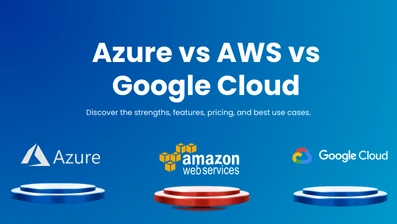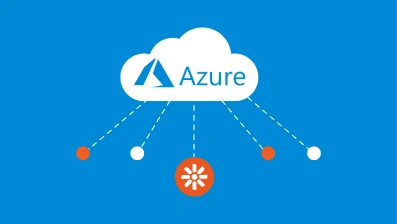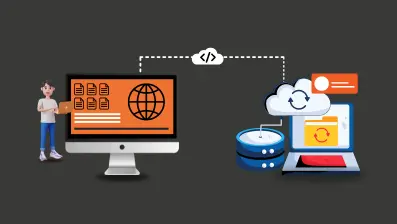Managing cloud costs can feel like walking through a maze, right? You’ve got endless possibilities, but without a clear direction, you could find yourself overspending without even realizing it. That’s where cloud costing management steps in to save the day.
Think of it as your GPS for the cloud. It helps you navigate the complex pricing structures, ensures you’re using only what you need, and ultimately keeps your cloud spending in check. Whether you’re a small startup or a large enterprise, keeping those cloud costs under control is crucial.
Why? Well, the cloud is awesome, but without proper cost management, it can become an expensive burden. And let’s be real, no one likes unexpected costs showing up at the end of the month. With cloud cost optimization, you can prevent that from happening, allowing you to focus more on innovation and growth.
In this blog, we’ll take you through the ins and outs of cloud cost management, so you can optimize your resources and maximize your return on investment (ROI). Ready to take control of your cloud budget? Let’s get started.
What is Cloud Costing Management?
Let’s break it down. Cloud costing management is all about making sure you’re spending the right amount on your cloud infrastructure—no more, no less. It’s the process of tracking, optimizing, and forecasting your cloud expenses to ensure that every dollar is well spent.
Imagine you’ve got a huge toolbox, but you’re only using a couple of tools. The rest? Just sitting there, gathering dust, but still costing you money. That’s what happens when you don’t manage your cloud costs. Resources you’re not using keep eating into your budget, and before you know it, your cloud spend spirals out of control.
With cloud cost management, you gain visibility into what’s really happening behind the scenes. You can identify which resources are over-allocated, underutilized, or completely unnecessary. Plus, with the right tools, you can monitor your costs in real time, so there’s no more guesswork.
In short, cloud cost optimization helps you stay on top of your cloud expenses, ensuring your business runs smoothly without any surprise bills. It’s like giving your cloud infrastructure a much-needed tune-up, so everything works efficiently and stays within budget.
Why is Cloud Costing Management Important?
Ever wonder why cloud costing management is such a big deal? It’s simple: as businesses shift more to the cloud, managing those costs becomes crucial. Here’s why:
Firstly, the cloud offers incredible flexibility, but that flexibility can also lead to unchecked spending. Without proper management, you might find yourself paying for more resources than you actually need. It’s easy to spin up new services, but if you’re not careful, those costs can add up quickly.
Secondly, cloud costs are often unpredictable. One month, you’re running smoothly; the next, you’re hit with a bill that’s way higher than expected. Cloud cost optimization helps you predict and control these fluctuations, so you’re not caught off guard.
Lastly, effective cloud costing management can directly impact your bottom line. By monitoring and optimizing your cloud resources, you can reduce waste, avoid over-provisioning, and make sure every dollar spent contributes to your business goals.
In essence, cloud cost management isn’t just about saving money—it’s about making sure your cloud investment is working for you, not against you. So, staying on top of your cloud expenses means more control, more savings, and a clearer path to achieving your business objectives.
Key Elements of Cloud Costing Management
When it comes to cloud costing management, understanding the key elements can make all the difference. Here’s a breakdown of the essential components that help you keep those cloud expenses under control:
1. Cloud Resource Allocation
Imagine trying to build a house with too many or too few materials. The same goes for cloud resources. Proper resource allocation ensures you're using the right amount of cloud resources for your needs. It’s about matching your resources with your workloads, so you’re not wasting money on unused capacity.
2. Cost Tracking and Monitoring
You wouldn’t drive a car without checking the fuel gauge, right? The same logic applies to cloud costs. Cost tracking and monitoring involve keeping an eye on your cloud expenses in real time. Tools like AWS Cost Explorer or Azure Cost Management can help you see where your money is going and spot any unexpected spikes.
3. Optimization and Rightsizing
Ever heard of the term "right-sizing"? It’s about adjusting your cloud resources to fit your needs perfectly. Optimization and rightsizing ensure you're not over-provisioning—meaning you’re paying for more capacity than you actually use. It’s about finding that sweet spot where your resources are just right for your workload.
4. Forecasting and Budgeting
Setting a budget and sticking to it can be challenging without a clear forecast. Forecasting and budgeting involve predicting your future cloud costs based on historical data and usage patterns. This helps you allocate your budget wisely and avoid surprise bills.
5. Cost Accountability
Who’s responsible for what? Cost accountability means assigning cost ownership to different teams or departments within your organization. This encourages responsible spending and ensures everyone is aware of their budgetary impact.
By focusing on these key elements, you’ll be well-equipped to manage your cloud costs efficiently and ensure that every dollar spent is working to benefit your business.
Best Practices for Cloud Costing Management
Now that we've covered the key elements, let’s dive into some best practices to help you manage your cloud costs like a pro. Following these strategies will ensure you’re getting the most value from your cloud investment while keeping your budget in check.
1. Automate Cost Management with Tools
Why waste time manually tracking costs when you can automate it? There are plenty of tools out there designed to simplify cloud cost management. Tools like AWS Trusted Advisor, Azure Advisor, and Google Cloud’s Cost Management provide insights and automate cost-saving recommendations. Set up alerts and auto-scaling to adjust resources based on real-time needs.
2. Implement Cloud Cost Alerts
Don’t wait until the end of the month to find out you’ve overspent. Cloud cost alerts can notify you when spending exceeds certain thresholds. This way, you can address potential issues before they escalate into big problems. Customize these alerts to fit your specific needs and avoid surprises.
3. Leverage Cost-Saving Models
Cloud providers offer various pricing models that can help you save money. For example, reserved instances or savings plans can offer significant discounts compared to on-demand pricing. Explore these cost-saving models and choose the ones that best align with your usage patterns.
4. Continuous Optimization
Cloud environments are dynamic, and so should be your approach to cost optimization. Regularly review your cloud resources and usage. Conduct periodic audits to ensure you’re not paying for unused or underutilized resources. Regularly update your optimization strategies based on changing needs and usage patterns.
5. Adopt a FinOps Approach
Integrate FinOps (Financial Operations) into your cloud management strategy. FinOps is about combining finance, operations, and technology teams to create a culture of cost accountability and optimization. It helps align cloud spending with business goals and fosters a collaborative approach to managing costs.
By implementing these best practices, you’ll be able to manage your cloud costs more effectively, avoid unnecessary expenses, and ensure that your cloud resources are aligned with your business needs.
Cloud Cost Management Tools and Platforms
When it comes to managing cloud costs, having the right tools at your disposal can make all the difference. Here’s a rundown of some top cloud cost management tools and platforms that can help you keep those expenses in check and make the most of your cloud investment.
1. AWS Cost Explorer
If you’re going for AWS development, AWS Cost Explorer is a must-have. It provides detailed insights into your AWS spending, allowing you to analyze cost and usage patterns. You can set up custom reports and visualize your expenses over time, helping you identify trends and potential savings.
2. Azure Cost Management
For those using Microsoft Azure development, Azure Cost Management offers robust features to track and optimize cloud spending. It provides tools for budgeting, forecasting, and analyzing your Azure costs. The platform also integrates with Azure Advisor to provide recommendations for cost-saving opportunities.
3. Google Cloud Cost Management
Google Cloud’s Cost Management tools offer similar functionality for Google Cloud Platform (GCP) users. The platform includes features for tracking and analyzing costs, setting budgets, and receiving alerts. It also integrates with BigQuery for advanced cost analytics and reporting.
4. CloudHealth by VMWare
CloudHealth provides a comprehensive solution for multi-cloud cost management. It offers in-depth visibility into your cloud spending across different providers, helping you optimize costs and manage budgets more effectively. Its advanced analytics and reporting capabilities make it a powerful tool for complex cloud environments.
5. Cloudability
Cloudability (now part of Apptio) helps organizations manage and optimize cloud costs across multiple platforms. It offers features like cost allocation, budgeting, and detailed reporting. Its powerful analytics can help you identify cost-saving opportunities and improve overall cloud financial management.
Choosing the right cloud cost management tool depends on your specific needs and the cloud platforms you’re using. These tools can help you gain better control over your cloud spending and ensure you’re making the most of your resources.
Challenges in Cloud Costing Management & How to Overcome Them
Managing cloud costs isn’t always a walk in the park. There are several challenges in cloud costing management that can make it tricky. Let’s explore some of these challenges and how you can tackle them head-on.
Complexity in Multi-Cloud Environments
Challenge: Many businesses use multiple cloud providers to leverage the strengths of each platform. However, managing costs across different clouds can get complicated. Each provider has its own pricing model, and keeping track of expenses across them can be overwhelming.
Solution: To tackle this, consider using a multi-cloud management tool like CloudHealth or Cloudability. These tools offer centralized visibility and reporting across various cloud platforms, helping you keep a handle on your costs.
Unexpected Cloud Cost Spikes
Challenge: One minute, everything’s running smoothly; the next, you’re hit with a surprise spike in your cloud bill. These unexpected costs can be due to sudden increases in usage or misconfigured resources.
Solution: Set up cloud cost alerts to monitor for unexpected spikes. Tools like AWS Cost Explorer or Azure Cost Management can help you configure alerts that notify you when spending exceeds predefined thresholds. This way, you can address issues before they escalate.
Shadow IT
Challenge: Sometimes, teams or departments use cloud services without going through proper channels, a phenomenon known as shadow IT. This can lead to untracked spending and security risks.
Solution: Implement a cloud governance strategy to track and manage all cloud resources. Encourage transparency and establish a process for requesting and approving new cloud services. Tools like Azure Cost Management can help you monitor usage and ensure compliance with your governance policies.
By addressing these challenges with the right strategies and tools, you can better manage your cloud costs and avoid common pitfalls.
How Cloud Costing Management Impacts Business Growth
Effective cloud costing management isn’t just about keeping your expenses in check; it’s a key driver of business growth. Here’s how managing your cloud costs can positively impact your organization:
1. Enhanced Financial Control
When you have a firm grip on your cloud cost management, you gain better control over your financial resources. By optimizing your cloud spending, you free up budget that can be reinvested into other areas of your business. This financial flexibility allows you to allocate resources to innovation, new projects, or scaling operations.
2. Improved Resource Efficiency
Cloud cost optimization leads to more efficient use of resources. When you right-size your cloud infrastructure, you ensure that you’re not paying for unused capacity. This efficiency can enhance your operational performance and reduce waste, which translates to cost savings and a healthier bottom line.
3. Competitive Advantage
In today’s fast-paced market, agility is crucial. By managing your cloud costs effectively, you can adapt quickly to market changes without the worry of budget overruns. This agility allows you to respond to opportunities and challenges faster than competitors who may be bogged down by unmanaged cloud expenses.
4. Increased ROI
One of the biggest benefits of cloud costing management is improved return on investment (ROI). When you manage your cloud costs effectively, you ensure that every dollar spent contributes to achieving your business goals. This increased ROI can drive growth and support strategic initiatives.
By focusing on cloud cost management, you not only keep your expenses under control but also create a foundation for sustained growth and competitive success.
Steps to Implement Cloud Costing Management in Your Organization
Ready to get serious about cloud costing management? Implementing a solid strategy can transform how you handle your cloud expenses and drive more efficient operations. Here’s a step-by-step guide to get you started:
1. Create a Cloud Cost Management Strategy
Start by defining a clear cloud cost management strategy. Outline your goals, budget limits, and cost-saving objectives. Identify key stakeholders and assign roles for monitoring and managing cloud costs. This strategy will serve as your roadmap for managing expenses and optimizing resources.
2. Assign Roles and Accountability
Cost accountability is crucial. Designate team members or departments responsible for managing and tracking cloud costs. Ensure that these individuals understand their roles and have the tools and information they need to succeed. This accountability helps promote responsible spending and keeps everyone aligned with the budget.
3. Set Up Cost Management Tools
Choose and implement cloud cost management tools that fit your needs. Tools like AWS Cost Explorer, Azure Cost Management, or Google Cloud Cost Management can provide insights and automate cost tracking. Set up these tools to monitor expenses in real time, set budgets, and receive alerts for overspending.
4. Establish Budgeting and Forecasting Processes
Develop processes for budgeting and forecasting your cloud costs. Use historical data to predict future expenses and set budgets accordingly. Regularly review and adjust your forecasts based on actual usage and any changes in your cloud strategy.
5. Continuously Optimize and Monitor
Cloud environments are dynamic, so continuous optimization is key. Regularly review your cloud usage and spending patterns. Adjust resources as needed to avoid over-provisioning and reduce waste. Make optimization a regular part of your cloud management routine.
6. Review and Adjust Regularly
Finally, make it a habit to review your cloud costing management practices regularly. Assess what’s working, identify areas for improvement, and adjust your strategy as needed. Regular reviews help ensure that your cost management practices remain effective and aligned with your business goals.
By following these steps, you’ll be well on your way to mastering cloud costing management and ensuring that your cloud resources are used efficiently and cost-effectively.
Why Partner With DotStark for Cloud Costing Management?
Navigating the complexities of cloud costing management can be daunting, but partnering with a specialized company can make all the difference. Here’s why teaming up with the leading Cloud Platform Development Company is a game-changer for your business.
Expertise and Experience
Our team brings extensive expertise in cloud cost management. We understand the ins and outs of various cloud platforms and pricing models. With our experience, we can help you optimize your cloud usage, implement effective cost management strategies, and avoid common pitfalls.
Tailored Solutions
Every business has unique needs. We provide customized solutions that align with your specific requirements and goals. Whether you need help with budgeting, forecasting, or resource optimization, we tailor our services to fit your business perfectly.
Advanced Tools and Technology
We use the latest tools and technologies to manage and optimize your cloud costs. From real-time monitoring to automated alerts, our solutions are designed to provide you with the insights and control you need to keep your cloud spending in check.
Focus on Your Core Business
By letting us handle your cloud costing management, you can focus on what you do best—running your business. We take care of the technical details, allowing you to concentrate on growth and innovation.
Partnering with DotStark means you’ll have a dedicated team working to ensure your cloud investment is optimized and delivering the best value for your business.
Conclusion
Mastering cloud costing management is essential for any business looking to harness the full potential of cloud technology while keeping expenses in check. By implementing effective strategies, leveraging advanced tools, and partnering with experts, you can optimize your cloud spending and drive significant value for your organization.
Frequently Asked Questions
Cloud costing management involves tracking, optimizing, and forecasting your cloud expenses to ensure you’re using resources efficiently and staying within budget.
It helps prevent overspending, improves resource efficiency, and enhances financial control, ultimately supporting business growth and agility.
Tools like AWS Cost Explorer, Azure Cost Management, Google Cloud Cost Management, CloudHealth, and Cloudability can help monitor and optimize your cloud expenses.
Address challenges by using multi-cloud management tools, setting up cost alerts, implementing a cloud governance strategy, and regularly reviewing your spending patterns.
It enhances financial control, improves resource efficiency, provides a competitive advantage, and increases ROI, all of which contribute to sustainable business growth.

.webp)

.webp)







 +91 9680599916
+91 9680599916
 vanshika@dotstark.com
vanshika@dotstark.com
